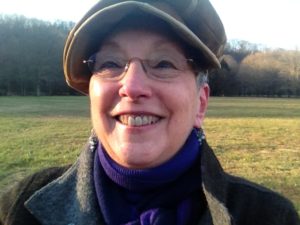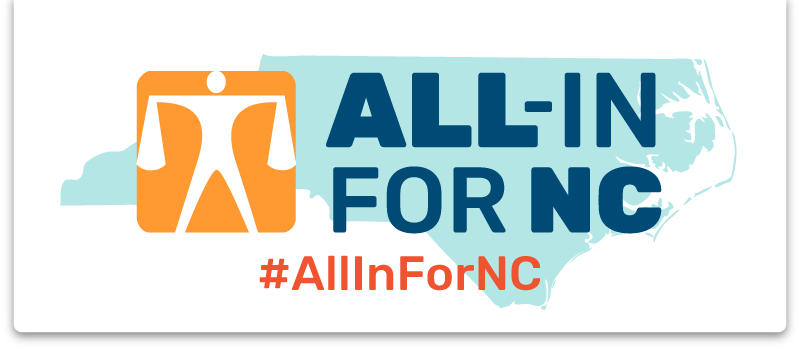by Judith Herman

Most paths to the White House go through North Carolina. With 16 Electoral College votes, it will be the third-largest swing state in the country. Donald Trump (R) edged out Joe Biden (D) by just 1.3 percentage points in the 2020 presidential election.
According to Roll Call, North Carolina is one of four states that could decide control of Congress in 2022 (along with Georgia, Florida, and Arizona).
North Carolina voters will elect a new U.S. senator to fill the open seat of the retiring Senator Richard Burr. The outcome could determine control of the Senate. Cheri Beasley, the Democratic former state supreme court chief justice who lost reelection in 2020 by a mere 401 votes of 5,291,501 votes cast, has announced her candidacy.
Every seat also matters in the U.S. House, where Republicans would regain the majority with a net gain of just five seats — a paltry number when midterms historically favor the party out of the White House. I don’t want to see the craven Trump sycophant Kevin McCarthy wielding the speaker’s gavel, do you?
North Carolina’s population grew 9.5% in the last decade, outpacing other parts of the country and earning the state a fourteenth seat in Congress and another vote in the Electoral College. Swinging NC blue could be key to holding the House and Senate in 2022 and both Congress and the presidency in 2024.
Putting in work early is our best shot. I have roots in North Carolina, and I know it’s been creeping in a more progressive direction. I’d be so proud to see it turn blue! Help me nudge it over the edge!

Actions
Virtual Picnic Table
Join All In for NC every Sunday evening, from 9/19 through 10/31, to take action and organize. Meet around the virtual picnic table to support progressive NC candidates and voter registration groups in the lead-up to the November elections. This can become a delightful habit; attend when you can.
Breakout rooms for postcarding, phonebanks, other activities, and guest speakers. Each breakout room will have a leader who will train volunteers and answer any questions.
All In for NC monthly meeting
Updates on All In for NC’s projects.
Community outreach phone banks for Rep. Brian Farkas
Join County-to-County (C2C) and NC State House Representative Brian Farkas for a phone bank. Rep. Farkas is the freshman representative of HD-9. Despite his short time in the legislature, he has already been fighting for campaign finance reform, independent redistricting, funding for behavioral health clinics and public school nurses, and improved and expanded broadband.
Voter outreach phone banks for Alamance County municipals
Join County-to-County (C2C) and Alamance County for Voter Outreach and Engagement Phone Banks for the upcoming Municipal Elections.
Ground zero for partisan and racial gerrymandering
“North Carolina really is, in some ways, ground zero for partisan and racial gerrymandering,” former U.S. Attorney General Eric Holder said in a speech at the UNC School of Law in February.
From Neighbors on Call, Policy Update:
“The NC legislature has begun the process of redistricting, using 2020 census data to draw new state and federal voting maps. Based on the results of the 2020 census, North Carolina’s population is both bigger and more diverse, and more people now live within cities and suburbs than in small towns. These shifts have implications for the political future of the state.. Democrats are calling for transparency as the legislature’s redistricting committees discuss when and how to conduct public hearings. A special report from NC Policy Watch, “Demystifying the redistricting process,” provides an overview of what we can expect in the coming months.
“The NC General Assembly has set criteria for the redistricting process. Criteria created by Republican leadership, who mostly ignored input from Democrats, included the banning of use of data from previous elections, partisan registration data, and data about race in the redrawing process. Democrats pointed out that even if these data sets are not directly loaded onto the redistricting systems, outside groups will run such analyses and provide input to legislators outside of the official, nominally transparent process, and they advocated for conducting analyses using race data after the initial draw to ensure compliance with the Voting Rights Act.”
Even though Democrats control the executive branch and Republicans lead the legislative branch today, there’s no need for compromise. New maps require only a 51% majority vote. The Democratic Governor does not have veto power.
Politicians and the public can now start crunching numbers and experimenting with different ways to carve up those 14 U.S. House districts, 50 N.C. Senate districts and 120 N.C. House districts.

The NC House and Senate redistricting committees are currently defining the process for drawing new maps for the next decade. Join a virtual meeting with Lehka Shupeck, North Carolina State Director of All on the Line (Eric Holder’s redistricting organization) on Tuesday, September 14 @ 7:30 PM (“doors” at 7 PM): “Ready for Redistricting? Know Your Part” to find out what to expect.
RSVP HERE


Leave a Reply